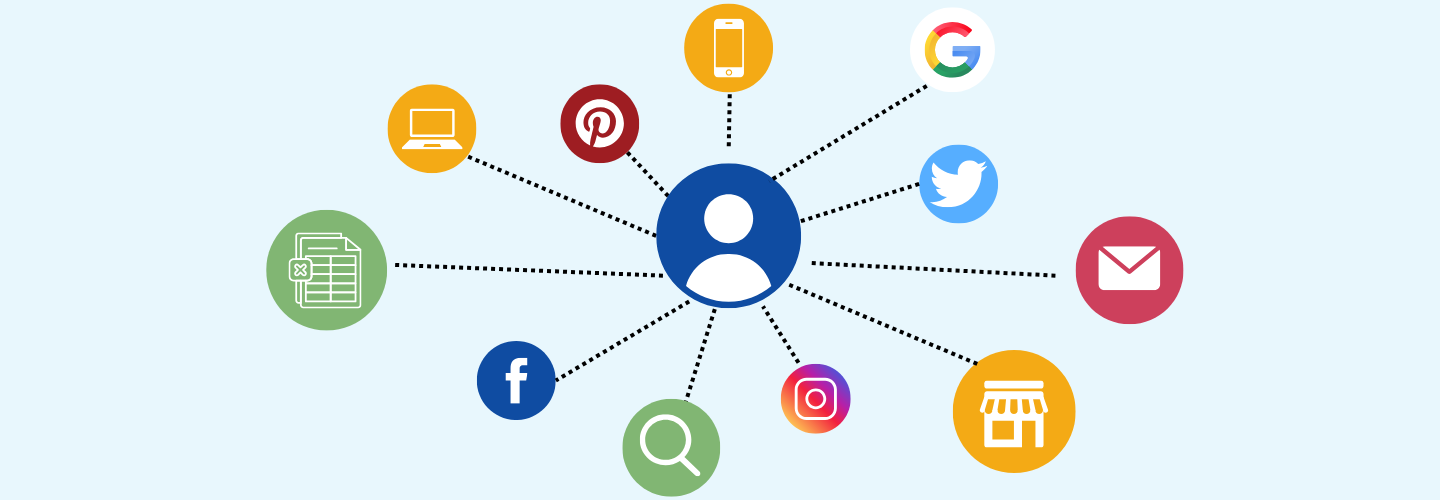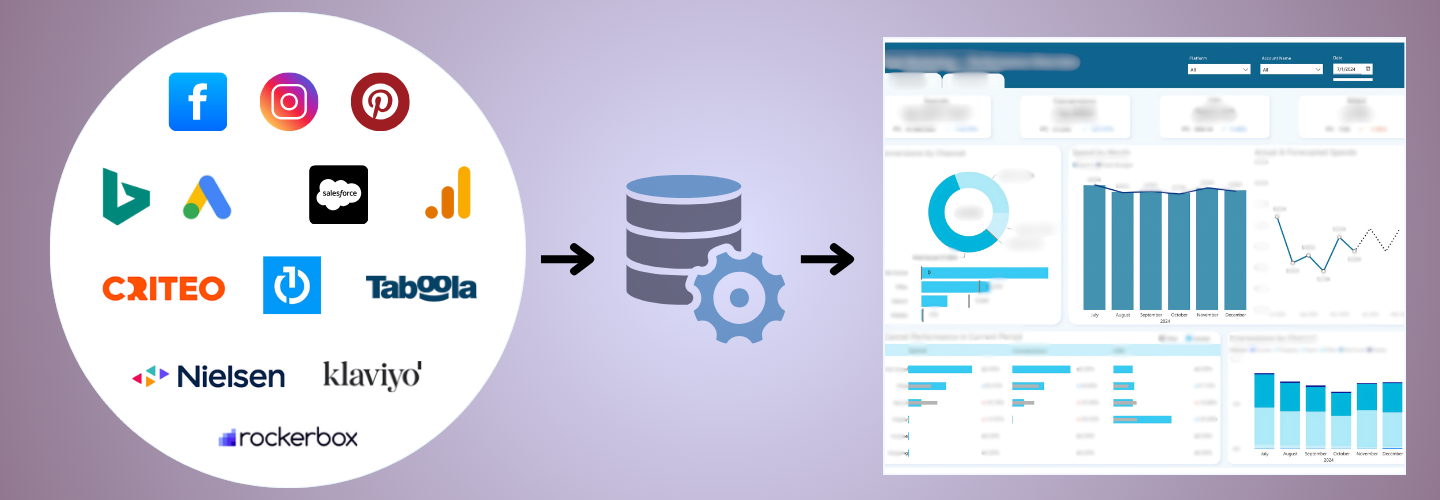In today’s digital-first world, e-commerce analytics is no longer optional—it’s a necessity. Businesses that harness the power of data gain a competitive edge, making informed decisions that drive sales, enhance customer experience, and optimize marketing strategies. With vast amounts of data available, leveraging the right tools and insights can transform how an online business operates. Understanding the nuances of marketing data analytics helps brands refine their approach, ensuring they not only attract but also retain customers.
The modern e-commerce landscape is data-driven, and companies that fail to leverage analytics risk falling behind. Every customer interaction generates valuable data that, when properly analyzed, can reveal trends, preferences, and behaviors. Whether you're tracking user engagement, analyzing purchasing patterns, or optimizing your sales funnel, marketing analytics is at the core of success. Businesses that actively use analytics can refine their marketing efforts, improve their return on investment, and enhance their overall strategy.
What is E-commerce Analytics?
E-commerce analytics involves collecting, analyzing, and interpreting data to improve an online business’s performance. It provides insights into customer behavior, sales trends, and marketing effectiveness. From tracking conversion rates to measuring customer lifetime value, businesses can make data-driven decisions that enhance profitability.
The role of marketing analytics in e-commerce goes beyond just tracking numbers—it’s about understanding what drives consumer actions. By analyzing purchase patterns, businesses can tailor their offerings to meet customer needs, resulting in better engagement and higher conversion rates. Analytics can also help businesses identify which marketing channels are most effective, allowing for better budget allocation and resource planning.
Key Metrics to Track in E-commerce Analytics
To leverage the full potential of a marketing analytics dashboard, businesses must focus on critical metrics that provide actionable insights:
- Conversion Rate: Measures the percentage of visitors who complete a desired action, such as making a purchase or signing up for a newsletter.
- Customer Acquisition Cost (CAC): Determines how much it costs to acquire a new customer.
- Customer Lifetime Value (CLV): Predicts the total revenue a customer will generate throughout their relationship with the brand.
- Cart Abandonment Rate: Helps identify friction points in the buying process.
- Return on Investment (ROI): Evaluates the profitability of marketing campaigns.
- Website Traffic and Sources: Understands where visitors are coming from to optimize marketing efforts.
- Average Order Value (AOV): Helps businesses understand customer spending behavior and adjust pricing strategies accordingly.
- Bounce Rate: Identifies how many visitors leave the site without engaging, offering insights into website performance and usability.
The Power of a Marketing Analytics Dashboard
A marketing analytics dashboard plays a crucial role in e-commerce success. It consolidates data from various sources, offering a visual representation of performance indicators. With real-time insights, businesses can monitor campaign effectiveness, customer engagement, and revenue trends at a glance.
A well-structured marketing analytics dashboard provides a centralized view of key data points, allowing businesses to adapt strategies dynamically. Whether tracking social media engagement, email marketing performance, or paid advertising results, a dashboard simplifies complex data, making it actionable. By integrating multiple tools, businesses can create a seamless analytical process that empowers them to make informed decisions based on real-time information.
Benefits of Implementing Marketing Analytics Services
Investing in marketing analytics services brings multiple advantages, helping businesses stay ahead of the curve:
- Enhanced Decision-Making: Data-driven insights enable businesses to make smarter choices, optimizing marketing budgets and maximizing returns.
- Personalized Customer Experiences: By understanding customer preferences, businesses can create targeted campaigns that resonate with their audience.
- Improved Marketing ROI: Identifying what works and what doesn’t, ensures that marketing spend is allocated effectively.
- Real-Time Monitoring: Businesses can track performance in real time, making adjustments to strategies as needed.
- Competitive Edge: Insights from marketing agency analytics help businesses stay ahead of competitors by identifying market trends and opportunities.
- Cross-Channel Optimization: E-commerce businesses use multiple platforms, from social media to email marketing. Analytics services help integrate all these channels, ensuring consistency in messaging and strategy.
How to Use E-commerce Analytics for Business Growth
To truly harness the power of e-commerce analytics, businesses must take a strategic approach:
- Integrate Multiple Data Sources: Using a marketing analytics dashboard that pulls data from various platforms—such as Google Analytics, social media, and email marketing tools—ensures a comprehensive view of performance.
- Segment and Personalize: Analyzing data helps segment audiences based on behavior, preferences, and demographics, allowing businesses to create personalized experiences that increase engagement and sales.
- A/B Testing for Optimization: Testing different marketing strategies, such as ad creatives, email subject lines, and landing pages, helps identify what resonates best with customers.
- Automate Reporting and Insights: Implementing automated tools saves time and ensures businesses always have access to the latest data insights.
- Enhance Customer Retention Strategies: Understanding customer churn rates and identifying why customers stop engaging with a business helps refine retention strategies.
- Optimize Marketing Spend: By evaluating the performance of different campaigns, businesses can allocate budgets effectively, ensuring every dollar spent contributes to growth.
- Measure Customer Satisfaction: Analyzing reviews, feedback, and customer surveys allows businesses to make data-driven improvements to their offerings and service quality.
E-commerce businesses that embrace marketing analytics gain a significant advantage in today’s competitive market. With the right marketing analysis dashboard, companies can unlock actionable insights, improve customer experiences, and boost revenue. From tracking key metrics to implementing marketing analytics services, leveraging data effectively is the key to long-term success.
As businesses grow, the ability to adapt and make informed decisions becomes even more crucial. The landscape of marketing agency analytics is constantly evolving, and staying updated with the latest trends ensures continued success. Data is the most powerful asset an e-commerce business can have—when used correctly, it transforms challenges into opportunities and potential into profit.
To explore how advanced marketing agency analytics can transform your business, visit Yavda.
Yavda is a leading provider of cutting-edge marketing analytics services, helping businesses unlock valuable insights through data-driven strategies. Their comprehensive solutions include real-time marketing dashboards, customer behavior analysis, and campaign performance tracking to optimize growth. Whether you need customized marketing analysis dashboards or expert guidance in marketing data analytics, Yavda ensures businesses maximize their ROI with precision-driven insights and tailored strategies.



